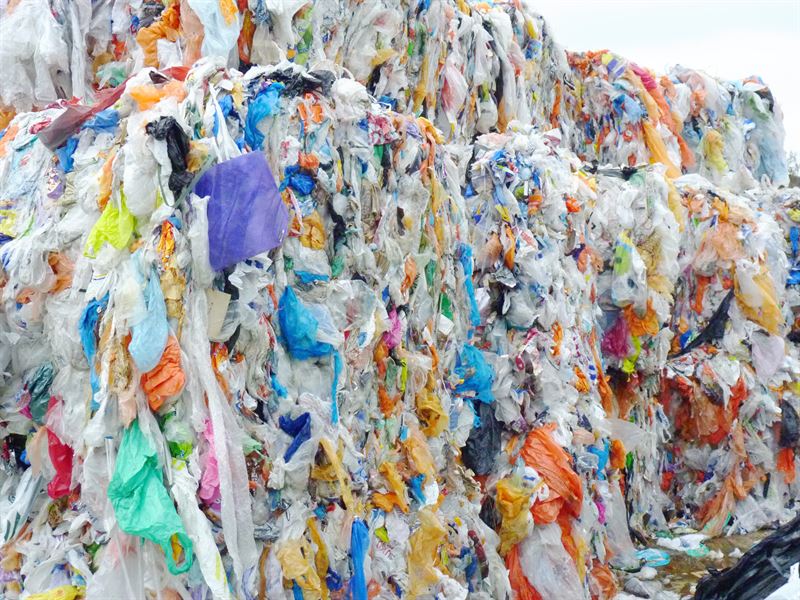
Neste, the world’s leading producer of renewable diesel, is now exploring ways to introduce liquefied waste plastic as a future raw material for fossil refining. The aim of the development project is to proceed to industrial scale trial during 2019. The company’s target is to process annually more than one million tons of waste plastic by 2030.
“Neste has been ranked the world’s second most sustainable company and we are already the world’s largest producer of renewable diesel from waste and residues. Our target is to also be a leader in low-carbon refining and support circular economy by developing innovative solutions based on waste plastic,” says Matti Lehmus, Executive Vice President of Neste’s Oil Products business area.
“With our strong legacy in raw material and pretreatment research, we are in a unique position to introduce waste plastics as a new raw material for fossil refining. At the same time, we aim to provide solutions to support global plastic waste reduction,” Lehmus continues.
Using waste plastic as a raw material increases material efficiency, reduces crude oil dependency and carbon footprint of products based on such raw material.
Chemical recycling set to increase recycling rateIn Europe, some 27 million tons of post-consumer plastic waste is generated annually. Only about one-third of this amount is currently collected for recycling.
In January 2018, the European Union released its Strategy for Plastics in a Circular Economy. One of its objectives is to increase recycling of plastics and reuse of plastic packaging by 2030. In the EU Waste package, recycling target for plastic packaging was raised to 50% by 2025 and 55% by 2030.
“In order to reach the ambitious EU plastics recycling targets, both chemical and mechanical recycling need to be recognized in the EU regulation,” Matti Lehmus says.
Chemical recycling means using waste plastics as raw material for the refining and petrochemical industries to convert them into end products such as fuels, chemicals, and new plastics. Chemical recycling can create new outlets for plastic waste by enabling high end product qualities, thereby complementing traditional mechanical recycling.
Neste building partnerships across the value chainReaching industrial-scale production of products from plastic waste still requires development of technologies and value chains. To accelerate development, Neste is looking for partners across the value chain, for example in waste management and upgrading technologies.
“Circular economy is built upon joint efforts,” says Matti Lehmus. “We wish to partner with leading companies throughout the value chain, who share our sustainability values and ambition, and are ready to move forward with us.”
Forerunner also in bio-based plasticsIn addition to exploring ways to utilize plastic waste as raw material, Neste is helping the plastics industry and various plastics-consuming companies to reduce their crude oil dependency and climate emissions by producing durable and recyclable renewable plastics from bio-based raw materials, such as waste fats and oils. As an example, Neste and IKEA will produce polypropylene (PP) plastic from fossil-free, bio-based raw materials at commercial scale during fall 2018. This will mark the first time in the world that bio-based PP is produced at a commercial scale.
Contact
Matti Lehmus
Executive Vice President, Oil Products, Neste
tel. +358 50 458 4072
Neste in brief
Neste (NESTE, Nasdaq Helsinki) creates sustainable solutions for transport, business, and consumer needs. Our wide range of renewable products enable our customers to reduce climate emissions. We are the world’s largest producer of renewable diesel refined from waste and residues, introducing renewable solutions also to the aviation and plastics industries. We are also a technologically advanced refiner of high-quality oil products. We want to be a reliable partner with widely valued expertise, research, and sustainable operations. In 2017, Neste’s revenue stood at EUR 13.2 billion. In 2018, Neste placed 2nd on the Global 100 list of the most sustainable companies in the world.
Source
Neste Corp., press release, 2018-07-18.
Supplier
Share
Renewable Carbon News – Daily Newsletter
Subscribe to our daily email newsletter – the world's leading newsletter on renewable materials and chemicals









